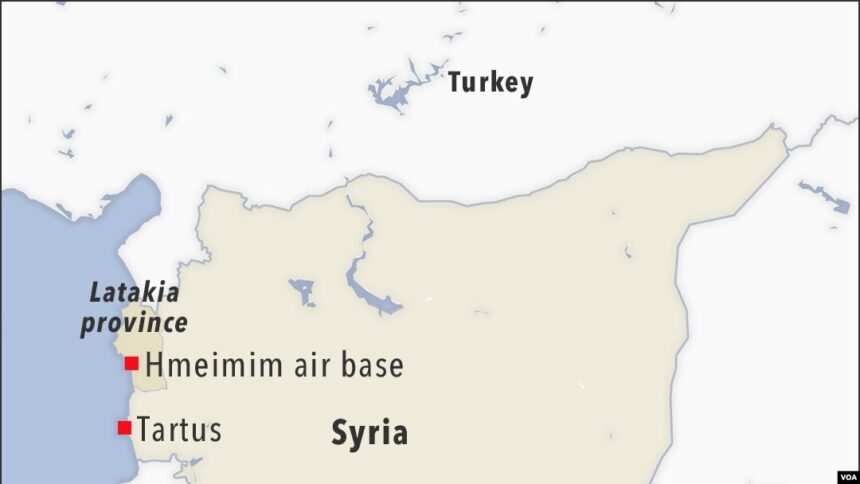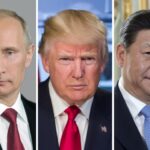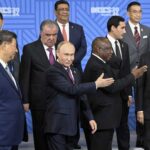Turkey’s reported intention to take control of Syria’s Tiyas Air Base (T4), located in central Syria, represents yet another gesture by Erdoğan toward Israel—one that Israel readily interprets as a ‘threat’ and responds to by targeting the base along with other military bases in the country
According to reports from state-aligned media such as Middle East Eye, Turkey plans to deploy Hisar-type air defense systems and drones to the base to deter Israeli air strikes and counter ISIS remnants in the region. Much of the alarm stems not from Turkey’s ‘intended actions’ alone but from how they’re being communicated. Publications like Middle East Eye, whose senior journalist Ragip Soylu is widely known to have close ties with Turkey’s government and intelligence circles, have been instrumental in framing the move as sourced from “official channels.”
This public and loud declaration can be framed as a strategic necessity; however, when viewed through the lens of Turkey’s existing military capabilities and the broader geopolitical environment, it becomes clear that such justifications are tenuous. More troubling, Turkey’s approach has reinforced Israeli narratives about regional threats, offering Tel Aviv a renewed rationale to escalate military operations in Syria under the banner of preemptive self-defense.
Turkey’s rhetoric and overt signaling have triggered a wave of Israeli responses: On April 2, 2025, Israel conducted a series of coordinated airstrikes across Syria, targeting key military installations in Damascus, Hama, and Homs. In Damascus, the scientific research center in Barzeh—already targeted in late 2024—was hit again, while the Hama military airport suffered devastating blows. The IDF escalated further by striking Palmyra and the Tiyas (T4) Air Base, areas associated with Turkey’s so-called military ambitions. An Israeli official told The Jerusalem Post that the strikes were intended to “convey a message to Turkey: do not establish a military base in Syria and do not interfere with Israeli activity in the country’s skies.”
Strategic Alternatives and Expanding Capabilities
While Turkish officials portray their T4 or Palmyra plans ‘loudly’ and ‘publicly’ as a ‘strategic imperative, ’ Turkey’s current defense posture already grants it substantial reach into Syria and the wider region. The country’s defense industry has seen exponential growth, with exports rising from $1.9 billion in 2014 to $7.1 billion in 2024. This expansion reflects a drive toward technological self-sufficiency and geopolitical leverage.
Turkey already possesses extensive forward-operating depth, both within its own borders and in northern Syria—territories like Afrin, Jarablus, and al-Bab—which are well within range of strategic targets across central Syria and even Israel. Modern Turkish drones such as the Bayraktar TB2, Akıncı, and the next-generation jet-powered Kızılelma have sufficient operational range for reconnaissance and strike missions. Similarly, advanced indigenous missile defense systems like the Hisar-O+, Hisar-U (Siper), and Korkut, supported by integrated command networks such as RADNET and HAKİM, can project air superiority from within Turkish-controlled areas.
Turkey’s naval strategy further reinforces its regional deterrence. The TCG Anadolu, operating Bayraktar TB3 drones, along with MİLGEM-class corvettes and the upcoming MUGEM aircraft carrier, highlights Turkey’s pivot toward sustained maritime influence. Naval bases like Iskenderun—just 310 km from Haifa, 150 km from Russia’s Hmeimim Air Base, and 180 km from Tartus—place Ankara within striking distance of key Eastern Mediterranean flashpoints. Turkey’s naval and air bases allow the country to assert regional control while avoiding military overextension.
Adding to this layered defense capability is Turkey’s ambitious “Steel Dome” project, announced by President Erdoğan in late 2024. Modeled as a comprehensive multi-tiered air defense system akin to Israel’s Iron Dome, the Steel Dome integrates short-, medium-, and long-range interceptors—including Hisar variants and the long-range Siper system—into a unified national defense grid. It is designed to counter a range of aerial threats, from drones and cruise missiles to ballistic projectiles, using networked radar, command-and-control systems, and artificial intelligence assistance. Given Turkey’s existing presence and operational control in northern Syria, it is conceivable that the Steel Dome infrastructure could be extended into Syria after becoming operational. Such an expansion would allow Ankara to establish a forward layer of air defense without requiring deep incursions into central Syria.
In addition, Turkey has the option of activating its S-400 air defense system near the Turkish-Syrian border or within Turkish-controlled territories in northern Syria. While the S-400 remains politically sensitive due to US concerns, its presence—even symbolically—would add an additional deterrent layer and challenge Israeli calculations about unilateral air dominance in the region.
The Illusory ISIS Threat
Turkey’s other justification — that the T4 base is necessary to combat ISIS — is disingenuous. ISIS remains active in pockets of the Syrian desert, but Turkish intelligence and special forces, aided by drone surveillance and cooperation with local militias, have shown they can effectively neutralize such threats from afar. In 2024 alone, Turkish security forces conducted 1,400 counter-ISIS operations and arrested 1,279 suspects, according to the Interior Ministry.
The most pressing ISIS-related threat lies in northeastern Syria, where U.S.-backed SDF forces guard tens of thousands of detainees in poorly secured camps such as Al-Hol. As of March 2024, this camp held over 40,000 radicalized individuals from dozens of countries. The 2022 Hasaka prison break attempt, which resulted in hundreds of deaths, illustrated the destabilizing risk these facilities pose. These camps are far closer to Turkey and present an opportunity for Ankara to engage in coordinated stabilization efforts—especially if SDF structures were integrated under a reunified Syrian government.
From Tehran to Ankara: A Shift in Israeli Threat Perception
With Iranian influence in retreat and Hezbollah contained, Israel is recalibrating its regional threat assessments. Erdoğan’s public declarations regarding T4, especially in coordination with Syria’s new Islamist-led government, offer Israel a timely and convenient substitute threat. Israeli officials have warned that Turkish moves into T4 represent a strategic challenge. The recent IDF strikes on that very base and other bases suggest that Turkey’s ambitions are now a central factor in Israel’s regional security calculus.
What Turkey gains in perceived deterrence by publicizing its intentions for T4 and Palmyra, it loses in strategic subtlety. Israel has historically justified its operations in Syria under the guise of countering Iranian entrenchment.. Erdoğan’s overt push into central Syria—especially in coordination with Syria’s new Islamist-led government—offers Israel a convenient narrative shift: from countering Shia-backed militancy to preemptively containing a Sunni Turkish-Islamist axis.
This is not a theoretical concern. Israeli officials have already raised alarms over Turkey’s intentions at T4, citing ‘threats’ to their operational freedom. With Turkey now in a position once occupied by Iranian and Russian forces, Israel has a seamless justification to continue, or even escalate, its air operations. Ironically, Erdoğan—the so-called critic of Israeli aggression—is providing the pretext for its renewal.
Final Assessment
Turkey—being a neighboring country—is geographically much closer to Syria than Russia. Russia’s largest military installations in Syria—the Hmeimim Air Base and the naval facility in Tartus, which it formerly operated or still operates to some extent—are in close proximity to Turkey, situated just 150 km and 180 km, respectively, from Turkey’s naval base in İskenderun.
Therefore, Turkey does not need a base in central Syria to deter Israel or contain ISIS. Its growing defense industry, strategic naval and air assets, and current positions already give it formidable reach. Erdoğan’s overt campaign to base forces at T4 invites unnecessary confrontation, fuels Israeli expansionism, and undermines Ankara’s credibility as a regional stabilizer. A wiser strategy would prioritize quiet consolidation, political coordination with Damascus, and containment of threats from zones Turkey already influences. Otherwise, Turkey risks becoming not the region’s protector but Israel’s enabler.







